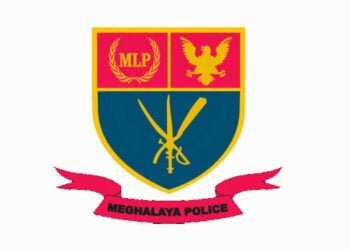The Forest and Environment Department has launched two important projects titled “Development of Schedule of Rates for Afforestation Works in Meghalaya” and “Establishment of a Supply Chain to Ensure Assured Supply of Seeds and Other Plant Propagules of Superior Genetic Makeup”
An inception workshop on the two projects was held today at Sylvan House, Lower Lachumiere here. Both projects conceptualised and steered by H C Chaudhary, Principal Chief Conservator of Forests, Working Plan, Research & Training and District Council Affairs, aim to build capacity of the department to afforest and restock barren and degraded forest areas in an efficient and cost-effective manner with assured success.
The first project aims to develop site-specific models for afforestation and restoration of different areas in the State. Cost effective scientific models for successful reclamation of abandoned mines and such other refractory sites available in the State will also be developed under the project.
Apart from assessing the quantity and cost of manpower and different materials and services required for various nursery and plantation activities, the project aims to standardise and document various nursery and plantation operations through a detailed method study. The project also aims to institutionalise use of modern tools, equipment, plants and machineries for execution of various afforestation activities.
The second project aims to develop an end to end supply chain for assured availability of seeds and other plant propagules of superior genetic makeup. In the first phase the project aims to cover 50 commercially important tree species.
The project aims to establish 500 hectares in-situ and 60 hectare ex-situ sources of seeds and other plant propagules of superior genetic makeup of 50 prioritised tree species.
A medium term seed storage unit having a capacity to store 10 to 15 tonne seeds of prioritised species for about ten years will be established at Upper Shillong. The project also aims to identify, document and take measures for long term preservation of old growth/heritage trees available in different parts of the State.
About one kilogram of seeds of as many seed bearing wild plants in the State as possible will be collected and deposited with the National Bureau of Plant Genetic Resources (NBPGR), a premier institute under the Indian Council of Agriculture Research (ICAR), for long term preservation.
Half of the seeds stored in long term storage units of the NBPGR at minus 20 degree Celsius temperature and 5 per cent relative humidity will be available to the Forest and Environment Department, whenever required to restock and reintroduce the wild population of these plants. Preservation of seeds with the NBPGR will act as an insurance against possible extinction of any native tree species in the State.
Apart from senior officers in the Forest and Environment, Agriculture, Horticulture, Soil and Water Conservation Departments in Meghalaya, senior forest officers from Nagaland, Manipur and Mizoram attended the workshop. Scientists from the Rain Forest Research Institute, Jorhat; Assam Agriculture University; North Eastern Hill University and NBPGR were also present in the workshop.
Deliberations were held during the workshop to finalise micro-details of activities to be undertaken under these projects. Several areas of collaboration with different departments, agencies and organisations in implementation of these projects were also identified. The list of species to be covered for the development supply chain were also finalised during the workshop.
























